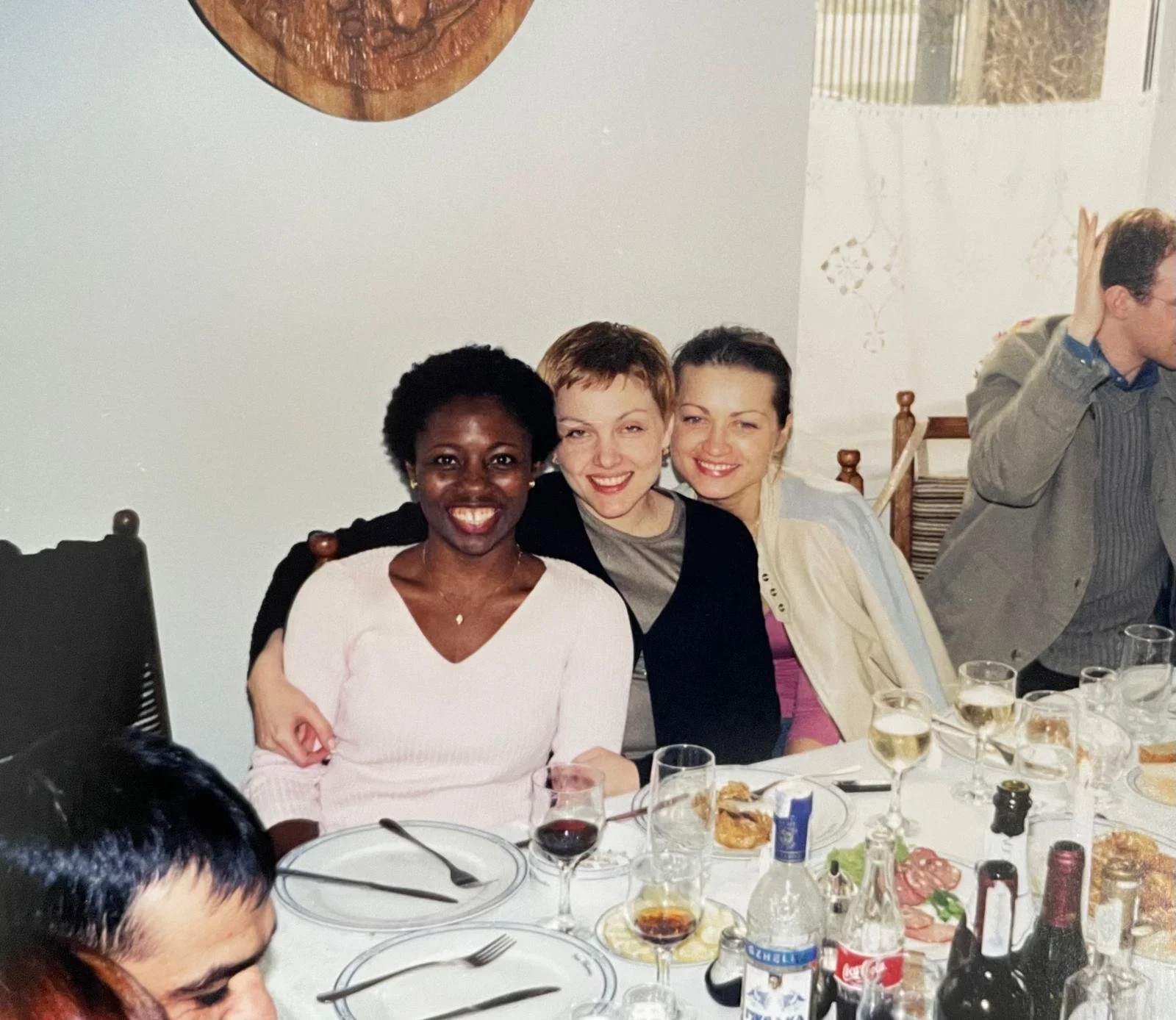On this International Day of Tolerance (2025)
Croshelle in Moldova as a Peace Corps Volunteer
I started my international career 1998 as a Peace Corps Volunteer in the Republic of Moldova. As a Texas native, I loved the landscapes and the slow, peacefulness of village life. Moldovans are hardworking people who love to celebrate life: holidays, birthdays, weddings. I soaked up as much culture as I could. What I was not so pleased with were the post-Soviet misperceptions of Americans, our values and culture. There were constant references to films like The Titanic and the show Beverly Hills 90210 – both undoubtedly U.S. exports. Even more jarring, though, was the constant question, “Where are you really from?” - asked with equal amounts of curiosity and skepticism.
Based on my appearance, I could not be a real American. There were no characters like me on that ill-fated ship or in that stereotypical American high school. I still talk about my experience of living in Moldova – the joys and the hardships, but I do not always highlight the fact that so many perceptions were based on controlled narratives about the West (or what I considered propaganda, at the time).
You certainly cannot hold this against Moldovans. During the Soviet era, access to the outside world had been strictly limited and “facts” were heavily controlled. The internet was not widely available yet, so people could only learn what was allowed. An element of the Cold War. In a large sense, that was the point of the U.S. Peace Corps: to offer a view of the “mysterious other” through real life, human interactions. And boy did I have plenty of those! In private homes, shops, restaurants; on sidewalks, buses, trains; in the clinic where I volunteered and schools visited across remote parts of the country. Constant questions coupled with disbelieving glances.
Without question, narratives are intended to shape the economic and diplomatic spheres. But what of the human-social domain? Even 27 years later, I can clearly recall how those probing questions made me feel. There were conversations that I eagerly participated in, hoping to educate, but there were many other debates that I chose not to be part of because there was little tolerance for diverse ideas or willingness to change the point of view. Resistance to opening the heart or the mind.
Fast forward to the current day and a reexamination of information manipulation. According to author and philosopher, Yuval Noah Harari, “The biggest misconception about information is that information is truth. Most information is not truth.” If you follow his point, does it help explain narratives about human rights violations happening in Gaza? Or the apparent massacre of Christians in Nigeria? Or stories crafted to establish “facts” about the history of Ukraine…or America?
“How are humans expected to engage with each other, especially as the internet and social media have seemingly brought us closer, if discourse drives us apart?”
While the terminology has been revised from propaganda to disinformation, the intention has not changed: to control narratives, formulate perceptions, and restrict tolerance for those who do not think or behave as prescribed. How are humans expected to engage with each other, especially as the internet and social media have seemingly brought us closer, if discourse drives us apart? Are we really learning more about the culture, nationality, and history of the “other” as President Kennedy intended? Or is there so much manipulation in the information space with little ability to discern fact from fiction? And what is my role as a global citizen?
In my experience, I have learned that the other is not a problem to be solved, but a presence to be encountered. And in that encounter, if we’re paying attention, we might just discover that the boundaries we’ve drawn between ourselves and the other were never as solid as we thought.
So I’ve joined a collective of the concerned with a passion for promoting tolerance and restoring social bonds supported by truth. Hopefully, my endeavors can help illuminate a path towards democratic renewal.






